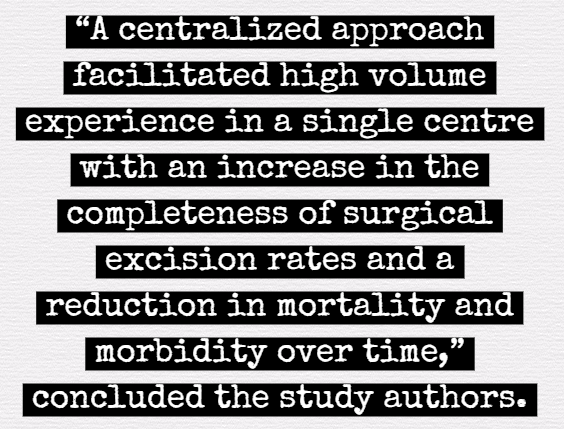Category: Treatments

Is Watson the Best Approach for Determining Treatment Plans?
Five years ago Watson debuted on Jeopardy! in a matchup with two of the winningest contestants from the show, Ken Jennings and Brad Rutter. Watson proved why he is a “supercomputer” by handily beating the two at the game. At the time, not many of the viewers envisioned that IBM’s artificial intelligence machine would someday be important to their healthcare. Now, Watson is mainstream in TV commercials asking viewers, “How can I help you?” For a mesothelioma patient, the answer might be, “Find the most effective treatment for me.”
Thanks to a partnership between New York’s Memorial Sloan Kettering Cancer Center (MSKCC) and IBM, Watson Oncology may soon be the go-to reference for oncologists, helping drive cancer care for all patients. Watson Oncology’s primary strength lies in the massive database fed with data from MSKCC on how their doctors treat their cancer patients. While this amount of data is nearly impossible for a doctor to analyze, Watson analyzes and assesses the information quickly, placing incredible knowledge at the doctors fingertips. For patients suffering from mesothelioma, a rare, aggressive cancer with few treatment options, Watson might just be the only way to guide oncologists to finding the best evidence-based treatment protocol.
“We are training Watson so oncologists anywhere will be able to make more specific and nuanced treatment decisions more quickly, based on the latest data,” said an MSKCC spokesperson in response to a comment in an article about Watson.
What is Watson Oncology?
Watson is the result of four years of hard work in IBM’s Grand Challenge: “Can a system be designed that applies advanced data management and analytics to natural language in order to uncover a single, reliable insight in a fraction of a second?” Using Jeopardy! as the ultimate test required IBM to build a machine that can interpret natural or human language that relies on the ability to relate pictures, phrases, figures, slang and nuances.
Since then, Watson has grown into a tool and resource for businesses worldwide. When MSKCC oncologist Mark Kris, MD, William and Joy Ruane Chair in Thoracic Oncology at MSKCC, realized the potential Watson could have on patient care, he led a team to build a database for Watson Oncology that could “revolutionize care and research, accelerating progress for people with cancers.”
MSKCC uses their “world-renowned cancer expertise” to drive Watson Oncology to give oncologists access to “individualized treatment options that are informed by medical evidence and our highly specialized experience.”
“I think this is beyond an evolutionary step,” says Dr. Larry Norton, Deputy Physician-in-Chief for Breast Cancer Programs, MSKCC. “I think this is a revolutionary step.”
In addition to MSKCC’s work with Watson, IBM and MD Anderson Cancer Center have also partnered. The partnership builds on MD Anderson’s oncologists’ knowledge to help drive the center’s Moon Shots program with a goal to “rapidly and dramatically reduce mortality and suffering in cancer.” In much the same as MSKCC’s Watson Oncology, MD Anderson’s Oncology Expert Advisor is expected to provide the medical team “with immediate, worldwide access to MD Anderson’s expertise and resources, and to IBM Watson’s technology prowess in quickly extracting crucial insights from large volumes of complex data.”
Expert Insight
Dr. Larry Norton, MSKCC
“This has the potential of totally changing the way we conduct medicine.”
Watson and Mesothelioma
Having what could become a nearly infinite volume of information instantly available makes Watson incredibly valuable. Using computers to help identify how to treat a complex medical condition, like mesothelioma, can improve survival and the patient’s quality of life. Having the information built by two of the most renowned mesothelioma centers in the world, can only mean excellent care for mesothelioma patients.
MSKCC is the world’s oldest and largest private cancer center, and has a team of specialists including surgical oncologists, medical oncologists, radiation oncologists, pathologists, and nurses who deal exclusively with mesothelioma and other thoracic cancers. They are committed to providing the best possible treatments for patients with malignant pleural mesothelioma, and often conduct clinical trials and studies for mesothelioma as they continue to make strides in the treatment of the deadly disease.
The University of Texas M.D. Anderson Cancer Center works hard at achieving their vision of being the “premier cancer center in the world” through their initiatives in the research and treatment of mesothelioma. The cancer center has over 30 specialists on staff that supports their multi-disciplinary approach to treating mesothelioma patients. Their ongoing research and unique initiatives dedicated to finding a cure for mesothelioma makes them one of the few cancer centers in the world with a comprehensive program.
“Cognitive computing in healthcare allows us to use every step, every heartbeat, every checkup, every gene, every prescription,” according to IBM. “IBM Watson Health is helping transform healthcare and leading us to new insights. Helping keep us all healthier.”
To find out more about how Watson can help you in your mesothelioma care see Watson Oncology on MSKCC’s website, or visit MD Anderson’s Moon Shots Program online.

Researchers Find New Way to Treat KRAS Lung Cancer
In March, MesotheliomaHelp reported that two drugs may be better than one when it comes to treating KRAS-positive lung cancer patients. Now, in a new study, researchers report they have found yet another way to tackle lung cancer when the KRAS gene is present.
In a July 28 press release from UT Southwestern, researchers report that the Kirsten rat sarcoma viral oncogene homolog (KRAS) gene, that is responsible for the most aggressive subtype of non-small cell lung cancer (NSCLC) and is found in nearly 30% of all NSCLCs, controls cell division and can drive healthy cells to divide uncontrollably, leading to cancer. The gene is tough and it nearly always fights off treatments building resistance to the drugs.
“Mutant KRAS not only promotes the growth of tumors, but also the survival of established lung cancer,” said Dr. Scaglioni, who leads the Cancer Signaling Laboratory at the Simmons Cancer Center. “Since we have no clinically-relevant effective inhibitors of mutant KRAS at this time, there has been an intense clinical interest in developing a treatment that is proven effective.”
In order to influence the effects of KRAS, the researchers realized they needed to target the ACSL3 gene. The researchers found that it is the ACSL3 gene that keeps cancer cells alive, yet when suppressed, the gene is responsible for cell death. They also found that the ACSL3 gene is “highly expressed” in lung cancer, thus making it critical to find a way to suppress it.
The scientists tested the impact of the ACSL3 gene in the lab using mice and on a human KRAS-positive NSCLC line. In both cases, the researchers proved that “ACSL3 silencing was accompanied by induction of apoptosis,” or cell death. They propose that, “ACSL3 is a target for the development of targeted therapies against mutant KRAS lung cancer.”
“There is an urgent need for discovery of additional targets that inhibit lipid metabolism in cancer cells that could lead to targeted therapies: the discovery of the importance of ACSL3 in lung cancer meets this unmet need,” said Dr. Mahesh S. Padanad, first author of the study.
Although the research was focused on lung cancer, every new breakthrough in cancer research brings hope to mesothelioma patients. Pleural mesothelioma, an asbestos-caused cancer equally as aggressive as NSCLC, is diagnosed in close to 3,000 Americans each year. Currently, there is no cure for the disease and treatments are often considered palliative.
The study was published in the July 26 issue of Cell Reports.

Experience Matters for Mesothelioma Treatment, Studies Show
MesotheliomaHelp encourages patients diagnosed with mesothelioma to seek care at a facility that specializes in treatment of the rare cancer in order to maximize their chances of having a positive outcome, and two recent studies out of the United Kingdom suggest that this advice could help improve patient survival.
One study, published in the journal Lung Cancer, looked at 8,470 cases of malignant pleural mesothelioma reported in the UK. Patients were mostly male with a median age of 73. Median survival was 9.5 months, but survival differed sharply by patient health status and tumor growth pattern. It also differed by cancer network from 209 days to 349 days.
“There is significant variation in care patterns and outcomes that may reflect limited expertise in area[s] with low [mesothelioma] incidence,” concluded the study authors, led by Dr. Paul Beckett of the royal College of Physicians, London.
A second study, published in Colorectal Disease, analyzed 1,200 surgical cases of patients with abdominal malignancy, including 65 peritoneal mesothelioma patients, over a 20 year period (1994-2014). The study period was divided per quartile of 300 patients so that outcomes over time could be compared. Two of the outcomes recorded were patients undergoing complete cytoreduction (removal of all visible tumors) and 30-day mortality (post-surgery).
The proportion of patients per quartile undergoing complete cytoreduction was 60.7%, 65%, 77%, and 80.3%, while patient mortality per quartile was 3%, 1%, 0.7% and 0.7%. In addition, complete cytoreduction in peritoneal mesothelioma patients was associated with a 5-year survival rate of 76%. Typical 5-year survival for mesothelioma patients is between 5% and 10%, according to the American Cancer Society.

Although both of the studies are out of the UK, they underscore the importance of choosing a cancer center with significant mesothelioma experience. Because mesothelioma is a rare cancer in the general population, most oncologists see very few patients with this disease and may not be familiar with how to effectively treat it. The busiest mesothelioma centers also often offer patients the opportunity to enroll in clinical trials that provide access to innovative treatments.
Being treated at a specialized mesothelioma center could very well involve traveling out of town or even out of state. This can mean not only giving up the comforts of home, but also incurring travel charges.
For those who do travel out of town for treatment, the American Cancer Society offers free accommodations at its 31 Hope Lodge locations. Another resource—Joe’s House—doesn’t offer free stays but does help cancer patients find accommodations close to treatment centers. Patients may also be able to find housing through the hospital that is treating them.
For a comprehensive list of top mesothelioma centers that’s searchable by state and zip code, please visit the MesotheliomaHelp Hospitals page. You can similarly search the site for mesothelioma specialists.
Know more about Mesothelioma and how you can deal with it.

Expression of CD10 Enzyme May Serve as Prognostic Factor for Mesothelioma Patients
Expression of an enzyme known as CD10 in malignant pleural mesothelioma tumors correlates with more aggressive cancer cell growth and shorter survival times, according to a new study published in the Annals of Surgical Oncology.
CD10 is a zinc-dependent cell surface enzyme expressed in both normal tissue and malignant tumors. Previous studies have indicated that CD10 expression in certain malignant tumors, including malignant melanoma, predicts tumor aggressiveness. Researchers led by Dr. Kyuichi Kadota of Memorial Sloan Kettering Cancer Center in New York set out to test whether CD10, which is expressed in malignant pleural mesothelioma, can be used to predict mesothelioma patient survival.
The research team looked at 176 malignant pleural mesothelioma cases among three different tumor subtypes (148 epithelioid, 14 biphasic, and 14 sarcomatoid) in order to determine negative or positive expression of CD10. Patients whose tumors showed positive CD10 expression were found to have significantly shorter survival.
“Tumoral CD10 expression correlated with aggressive histologic types and higher miotic activity and is an independent prognostic factor for patients with malignant pleural mesothelioma,” write the study authors in the conclusion to “Tumoral CD10 Expression Correlates with Aggressive Histology and Prognosis in Patients with Malignant Pleural Mesothelioma.”
Their finding is significant because the current best mesothelioma prognostic markers—cancer stage and cancer type—are limited in how accurately they can predict patient survival outcomes. Additional prognostic factors, the authors say, are necessary to optimize mesothelioma treatment options and to better stratify patients in clinical trials.
Treatment options for mesothelioma, a highly-aggressive form of cancer associated with exposure to asbestos, include radiation, chemotherapy, and surgery. Despite improvements, however, none of these options have proven to be particularly successful, and mesothelioma prognosis remains poor. According to the study authors, the median survival for mesothelioma patients is less than two years.
In general, patients who receive a mesothelioma diagnosis while the disease is in Stage 1 or 2 have a much better chance of successful treatment. Early diagnosis, however, can be difficult due to the disease’s long latency period of 15 to 60 years and its tendency during early stages to mimic non-life threatening ailments such as the flu.
There is still no cure for mesothelioma, but new treatments have made it possible to manage it as a chronic disease, and some patients live with the disease for years. Potential new mesothelioma therapies, meanwhile, are constantly being explored. Research topics run the gamut from novel (such as gene therapy) to common (e.g. the active ingredient in vinegar).

NYU Langone Researchers Identify Biomarker to Target for New Mesothelioma Treatment
Internationally renowned mesothelioma expert Dr. Harvey Pass has dedicated his career to the treatment, research and advocacy of mesothelioma. He knows that the key to finding a new, effective treatment for mesothelioma requires extensive research focusing on specific genetic characteristics of the disease.
In the September issue of the Journal of Thoracic Oncology, Dr. Pass and a team of researchers from NYU Langone Medical Center reported that they did just that and identified a protein that was overexpressed in each of the malignant mesothelioma tumors tested.
The Ephrin type-B receptor 2 (EPHB2) protein, or genetic marker, according to the researchers, was significantly elevated in malignant pleural mesothelioma tumor tissue compared with matched normal peritoneum. The protein was not elevated in benign mesothelial cells. EPHB2 controls a variety of cellular processes including the process through which new blood vessels form from pre-existing vessels.
However, when additional blood vessels develop in cancer cells, more food and oxygen are supplied to the cancer cells causing them to grow. Mesothelioma, a fast-growing cancer caused by past asbestos exposure, has limited treatment options, and finding a way to stop metastasis, tumor growth, is critical to improving survival and quality of life in mesothelioma patients.
The study showed that “knockdown” of EPHB2 in mesothelioma cancer cells induced apoptosis, or cell death. This led the researchers to conclude that “targeting EPHB2 might provide a novel therapy to improve the prognosis in people suffering from malignant mesothelioma.”
Dr. Pass, Chief of Thoracic Oncology, NYU Cancer Center and Chief, Division of Thoracic Surgery, NYU Langone Medical Center, is a past winner of the Pioneer Award from the Mesothelioma Applied Research Foundation for his dedication to mesothelioma research.
“We need to believe in a cure. I do think it will happen,” said Dr. Pass upon receiving the Pioneer Award.
This project was partially funded through a grant from Belluck and Fox, LLP. Belluck & Fox, LLP, a nationally recognized New York law firm dedicated to advocacy for mesothelioma patients and their families, is a long-time supporter of Pass and his work. The NYU Langone Medical Center’s Cancer Institute previously purchased a highly advanced molecular analysis system for cancer research with funds donated by Belluck & FoxBelluck & Fox, LLP.
“We know Dr. Pass and his team are fighting for a cure for mesothelioma, and we hope our support will lead to better treatments and, one day, a cure for mesothelioma,” said Joseph Belluck, founding partner of Belluck & Fox, LLP.
Free Mesothelioma Patient & Treatment Guide
We’d like to offer you our in-depth guide, “A Patient’s Guide to Mesothelioma,” absolutely free of charge.
It contains a wealth of information and resources to help you better understand the condition, choose (and afford) appropriate treatment, and exercise your legal right to compensation.
Download Now